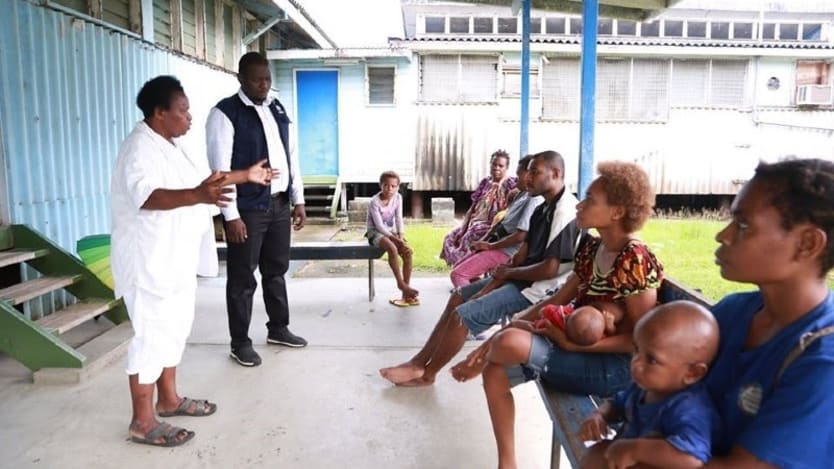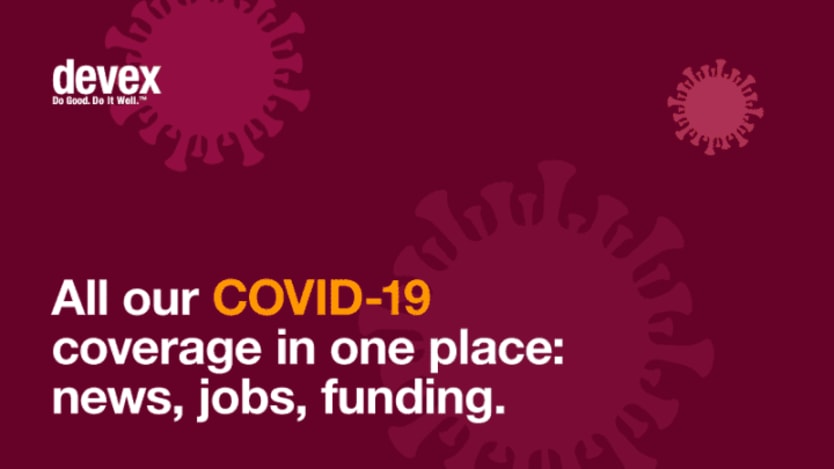
CANBERRA — In the Pacific region, COVID-19 has placed a magnifying glass on preexisting environmental and social challenges. It has highlighted flaws in government policy, partnerships, and delivery of development and humanitarian services — including those of international NGOs.
“COVID did not bring the social and environmental issues we face — it just made it worse,” Emeline Siale Ilolahia, executive director at the Pacific Islands Association of Non-Governmental Organisations, told the Oceania Connect conference on Oct. 29.
Bringing together the members of PIANGO, the Australian Council for International Development, and the Council for International Development in New Zealand, Oceania Connect highlighted that COVID-19 was part of the story for current and emerging challenges in the Pacific region. To respond to these, partnerships in the region would need to evolve — including those with NGOs.
COVID-19 as a ‘revealer’
Calling COVID-19 a “revealer,” Ilolahia explained that going out to communities to help support responses — including educating and informing communities — showed that access to water and crowded living conditions remained a challenge.
“The main components of your [not] being saved from COVID still exist in our communities,” she said. In Fiji, this was not just rural regions. Informal settlements in the capital Suva are among these high risk communities, according to Ilolahia.
Can school gardens help alleviate the economic impact of COVID-19 in the Pacific?
While community gardens have become an increasing part of the food security discussion, school gardens have not. The launch of a new program in Papua New Guinea hopes to change that.
Health and transmission risks are not the only issues COVID-19 is magnifying. Where governments invested heavily in expanding the tourism industry prior to the pandemic, local workforces have become more vulnerable. And strained relationships between Pacific countries and external governments, Ilolahia believes, means needs of the Pacific are not being considered.
“Our response and resilience to COVID, and any economic disaster, comes from our natural resources,” she said, explaining that sustainable fishing and agriculture to support food security for local communities was essential to reduce reliance on outside supply chains in the future.
“And then we still entertain Australia supporting big corporations to harvest our oceans and deep-sea mining, for example. Why are we entertaining these kinds of things? Why is mining still a business proposal?”
Through the preexisting donor-recipient relationships, Ilolahia said the needs of the Pacific were being put last in favor of external country demands. To change this, both INGOs and local NGOs needed to be willing to step aside to support grassroots leadership.
“This is where the localization thinking comes to play that we really advocate for during COVID,” she said.
Accelerating the move to localization
Vani Catanasiga, executive director at the Fiji Council of Social Services, said shifting the power and enabling a faster process toward localization would support rapid response and better targeted delivery of development and humanitarian assistance.
“In one instance with COVID, I saw just how … replaceable INGOs, and some local NGOs, became.”
— Vani Catanasiga, executive director, Fiji Council of Social Services“For me, shifting the power means an urgent overhaul of global humanitarian financing structures to one that doesn’t force us to work budget ceilings of $9,000 Australian dollars [$6,310] for COVID-19 risk comms and community engagement campaigns, led by hundreds of community volunteers,” she told the audience.
In Fiji, Catanasiga explained, responding to the health and social challenges including water, sanitation, and hygiene still required her to email INGO colleagues working from home appealing for additional funding — “only to be ignored or continuously referred to other INGOs partners,” she said. Still, despite “being left in the lurch,” local volunteers were supporting thousands “using their immense social capital.”
“In one instance with COVID, I saw just how … replaceable INGOs, and some local NGOs, became,” she said. “Unpaid volunteers … replicated much of the work of humanitarian NGOs across the country in a matter of weeks.”
Opinion: Localization and capacity assessment should go hand in hand
International humanitarian organizations must create a more efficient and harmonized way to assess the capacities of their local and national partners, explains this op-ed.
Craig Fisher, chair at the Fred Hollows Foundation New Zealand, said that NGOs needed to be “brave enough” to embrace localization as a better way of delivering services, and warned against complacency. He explained that as they were unable to travel to the Pacific, they had to operate through local providers which proved to be a faster delivery mechanism.
“[Local providers] have risen to the challenge,” Fisher said.
Digital opportunities also allowed them to support local workforces in new ways, one of many new delivery methods being tested. “We have to pick up the opportunities of COVID,” Fisher said. “There are as many opportunities as threats.”
While delivery needs to change, NGO advocacy will increase in importance
While shifting the approach of NGO program delivery toward localization is critical to the Pacific moving forward, wider political challenges were also emerging under COVID-19 that could see the role of NGOs as advocates increase in importance — from highlighting their needs on the global stage to bringing public attention to social issues that may emerge from new free-trade agreements.
Dinah Fuentesfina, campaign manager with Actionaid International, warned that trade agreements, including the Regional Comprehensive Economic Partnership targeting the Indo-Pacific region, were being pushed through despite COVID-19 with economic considerations skewed toward corporate interests.
This included reduction of tariffs that would see less income for governments to deliver social programs, as well as changing worker conditions that could increase insecurity.
“Back in April, ActionAid signed on to an open letter to stop all trade and treaty negotiations during the COVID-19 outbreak,” she said. The statement called for the “first and only priority for trade negotiators” to be focused on removing any obstacles that impact timely and affordable access to medical supplies, including vaccines.
Outside of trade agreements, debt burden was resulting in low- and middle-income-countries spending more on loan repayments that could go to communities. And system loopholes were resulting in U.S. companies among those exploiting global tax rules to avoid paying as much as $2.8 billion in developing countries, according to a report released by ActionAid on Oct. 26.
“The potential taxes are being lost due to global leaders failing to implement standards on tax that would force multinationals to pay more taxes in the countries where they generate their income,” Fuentesfina said.
For the Pacific in particular, highlighting these challenges and advocating for changes in international systems is an important way to support voices that may not always be heard. But it was one of many global challenges the Pacific needs to be heard more clearly on — with climate action another key area. And it is an area in need of NGO support.









